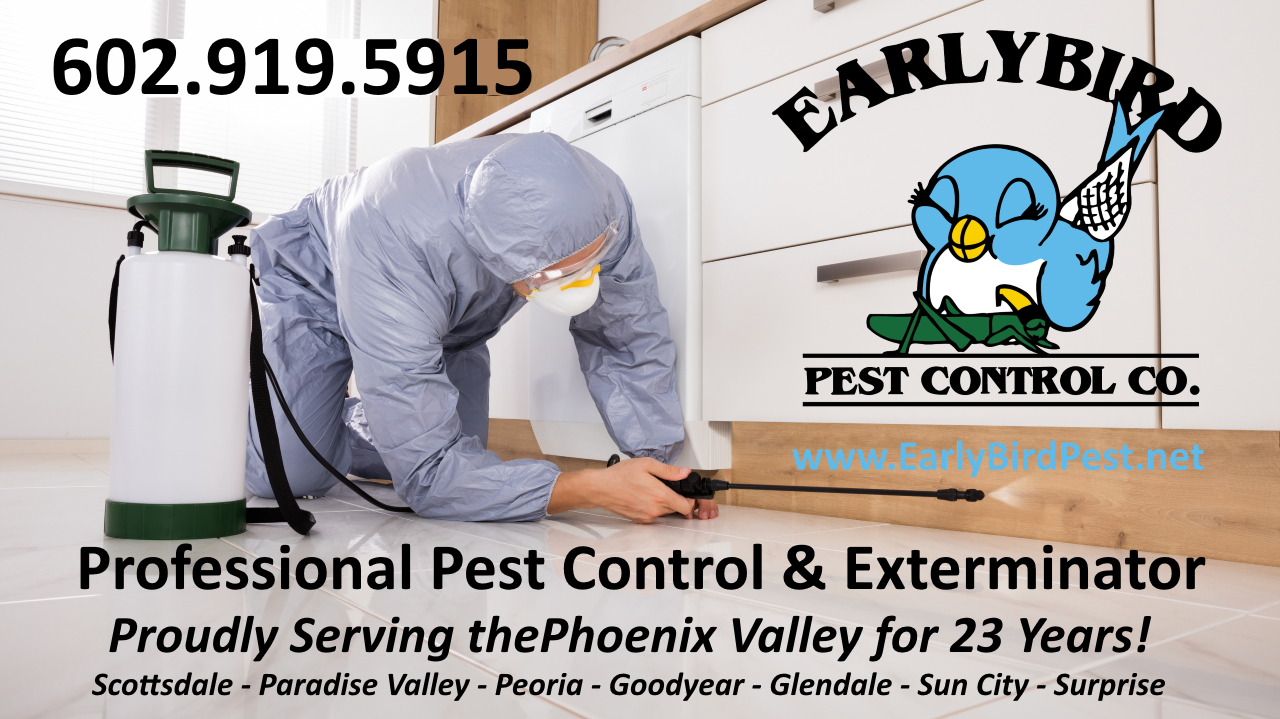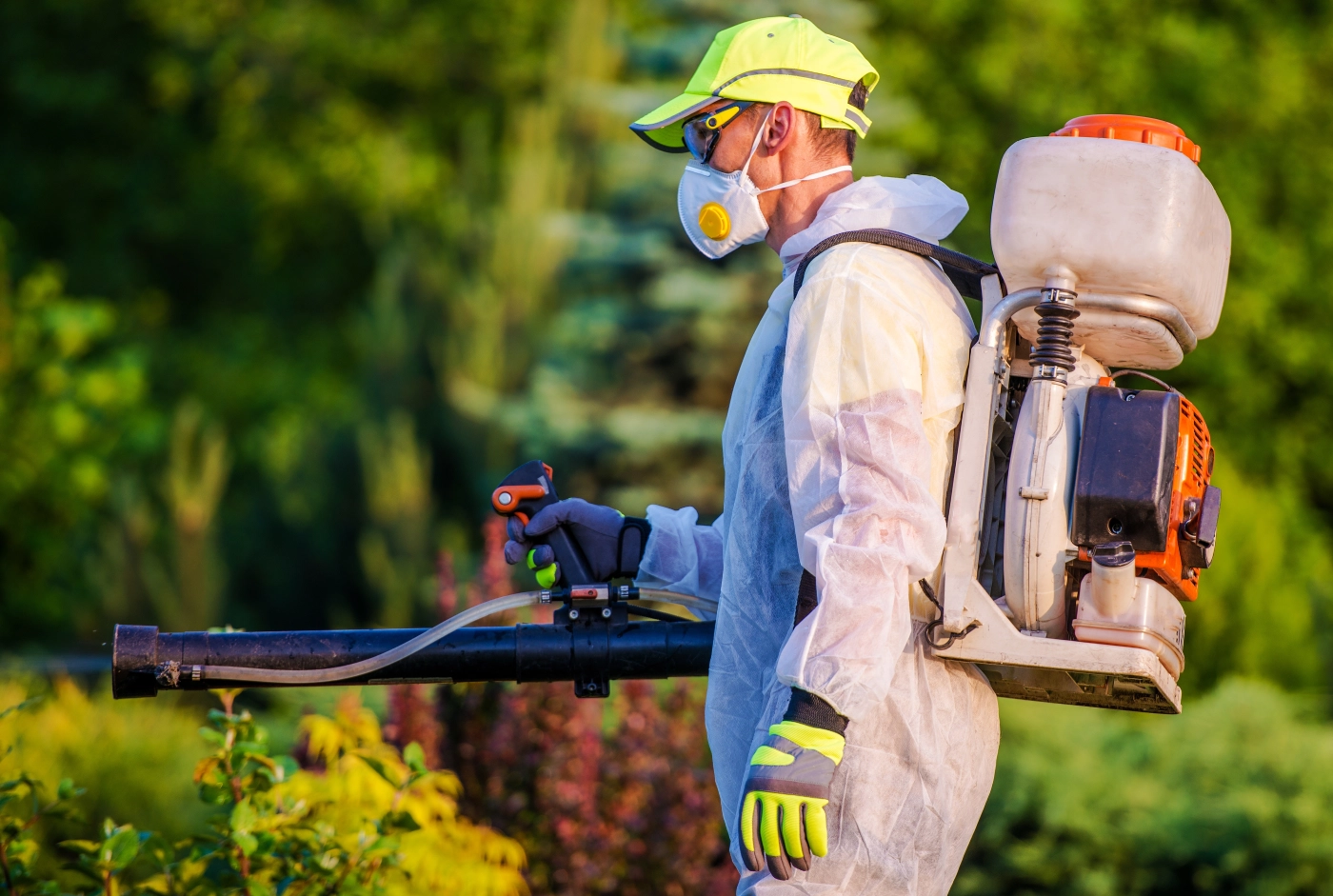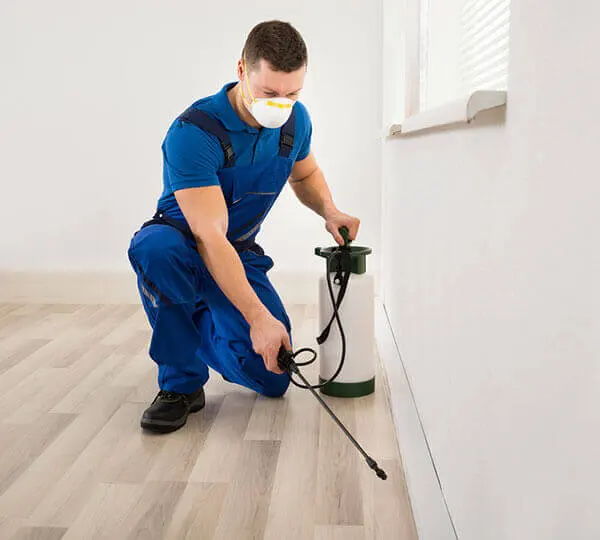Pest Control Clovis: Get Rid of Vermin Finally
Pest Control Clovis: Get Rid of Vermin Finally
Blog Article
Understanding the Different Strategies to Pest Control: A Comprehensive Overview

Natural Insect Control Methods
Employing eco-friendly strategies such as buddy growing and biological bug control is crucial for properly handling pests in farming settings. Friend planting entails expanding different plants in distance to deter parasites, enhance nutrient uptake, and boost overall plant health.
Organic bug control involves presenting all-natural predators or virus to manage pest populaces. Ladybugs, for example, feed on aphids, controlling their numbers without the requirement for chemical pesticides. An additional example is using Bacillus thuringiensis (Bt), a bacterium that targets certain insect pests while being harmless to human beings, animals, and useful pests.
These environmentally friendly approaches not only reduce the dependence on synthetic pesticides however likewise help protect biodiversity and soil health. By incorporating natural bug control techniques right into farming practices, farmers can achieve sustainable parasite management while lessening adverse effect on the setting.

Chemical Parasite Control Solutions
Along with natural insect control techniques, the use of chemical pest control services plays a substantial duty in properly taking care of pest populaces in farming settings. Chemical parasite control solutions are developed to target certain parasites that might create considerable damages to plants. These remedies usually have artificial chemicals that are made to eradicate parasites promptly and successfully.
Among the crucial advantages of chemical insect control solutions is their performance in regulating bug invasions on a big scale. Farmers can use these remedies utilizing different methods such as splashing, fumigation, or seed therapy to secure their crops from hazardous insects, weeds, and conditions. Furthermore, chemical insect control solutions are reasonably easy to use and can supply fast results, aiding farmers secure their yields and decrease economic losses.
However, it is necessary to make use of chemical insect control remedies sensibly to decrease prospective adverse impacts on the setting, non-target organisms, and human health and wellness. Proper application methods, adherence to safety and security guidelines, and routine monitoring are important to ensure the responsible usage of chemical pest control remedies in farming practices.
Biological Bug Control Approaches
Organic parasite control comes close to take advantage of natural predators or pathogens to handle bug populaces in farming settings properly. One usual organic control strategy is the intro of all-natural opponents, such as ladybugs or parasitic wasps, to target particular insects.
One more biological control approach entails using pathogens like fungi, microorganisms, or infections to contaminate and kill parasites. These microbial representatives can be sprayed on crops or presented right into the soil to combat numerous bugs without hurting useful insects or various other wildlife. Additionally, using pheromones to disrupt the breeding patterns of bugs is another reliable organic control technique. By conflicting with their reproduction, this approach assists to reduce parasite populations without the need for chemical treatment. In general, organic bug control methods offer a lasting and targeted option to pest management in farming.
Integrated Pest Administration (IPM)
Integrated Parasite Management (IPM) is a thorough method that integrates numerous bug control methods to effectively handle and lessen pest populaces in farming systems. IPM focuses on long-lasting avoidance of parasites through a combination of organic, social, physical, and chemical control methods. By integrating these different techniques, IPM intends to lower reliance on chemical pesticides, minimize environmental effect, and advertise sustainable parasite management practices.
One key element of IPM is making use of navigate to this website biological controls such as natural predators, parasites, and microorganisms to control bug populaces. This technique uses the power of nature to keep a balance in between pests and their natural enemies without creating harm to the atmosphere.
Furthermore, IPM involves cultural practices like plant turning, habitat, and hygiene manipulation to develop unfavorable problems for bugs and interrupt their life process. Physical controls such as traps, mulches, and obstacles are additionally made use of to stop pest infestations.
Mechanical and Physical Pest Control Techniques
Making use of non-chemical approaches, such as physical and mechanical insect control strategies, is a vital aspect of thorough pest administration strategies, constructing upon the foundation of Integrated Bug Administration's all natural strategy. Mechanical parasite control involves using physical barriers or traps to stop insects from accessing and harming plants or structures. content This method can include methods like mounting screens on windows, using row covers in agriculture, or utilizing sticky traps to capture pests.
Physical parasite control approaches, on the other hand, emphasis on directly getting rid of parasites with physical means. Utilizing warm treatments to eliminate bed bugs or vacuuming up pests like ants or spiders can be efficient ways to manage problems without the use of chemicals. By including these physical and mechanical insect control strategies right into an Integrated Pest Management strategy, individuals and experts can reduce dependence on pesticides while still successfully decreasing and handling pest look at this web-site populaces damage.
Verdict

In enhancement to all-natural parasite control approaches, the utilization of chemical parasite control solutions plays a substantial function in properly managing pest populaces in farming settings.One of the key advantages of chemical insect control solutions is their performance in controlling parasite invasions on a big scale.Integrated Bug Management (IPM) is an extensive strategy that incorporates numerous insect control approaches to successfully take care of and minimize pest populations in farming systems.Utilizing non-chemical approaches, such as mechanical and physical pest control techniques, is a crucial element of comprehensive bug administration approaches, constructing upon the structure of Integrated Pest Monitoring's holistic approach. By incorporating these physical and mechanical parasite control strategies right into an Integrated Insect Administration strategy, experts and people can decrease dependence on chemicals while still successfully taking care of pest populaces and decreasing damages.
Report this page